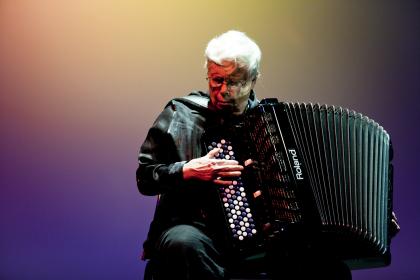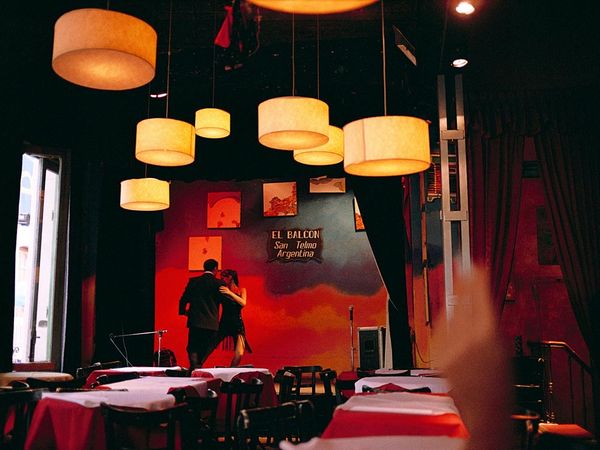
As unbelievable as it sounds, June has been designated National Accordion Awareness Month. It began in 1989 “to help spread the word about the resurgence in popularity of the accordion” and to promote education about the instrument, which originated in Berlin in 1822.
When you think of the accordion, Polish polka bands, Lawrence Welk, or the tango music of Astor Piazzolla may come to mind. Additionally, if you’ve ever wondered what the accordion would sound like playing remixed pop songs “from Lady Gaga to Queen” (or even if you haven’t), watch this video from a Huffington Post article.
The accordion opens up bold, meditative new sound worlds in the hands of American experimental composer and accordionist Pauline Oliveros (b. 1932). For Oliveros, sound is sacred. In 1988, she developed the concept of deep listening,
an aesthetic based upon principles of improvisation, electronic music, ritual, teaching and meditation. This aesthetic is designed to inspire both trained and untrained performers to practice the art of listening and responding to environmental conditions in solo and ensemble situations.
In 1968, Oliveros wrote Some Sound Observations, an interesting stream of consciousness article for Source magazine which explores the nature of sound and experimental music. Her approach to music seems to expand on the philosophies of John Cage, who may be best know for the ultimate “chance” piece, Four Minutes and thirty-three seconds.
Here is one of Pauline Oliveros’ accordion-based excursions into gradually unfolding sound. A Love Song enters the world of Ambient music. It’s built on dominant harmony, the chord we expect to resolve to the tonic. But in this piece the V chord, which changes and evolves in waves like a sonic kaleidoscope, remains suspended:
[unordered_list style=”tick”]
[/unordered_list]
Walk so silently that the bottoms of your feet become ears.
-Pauline Oliveros

